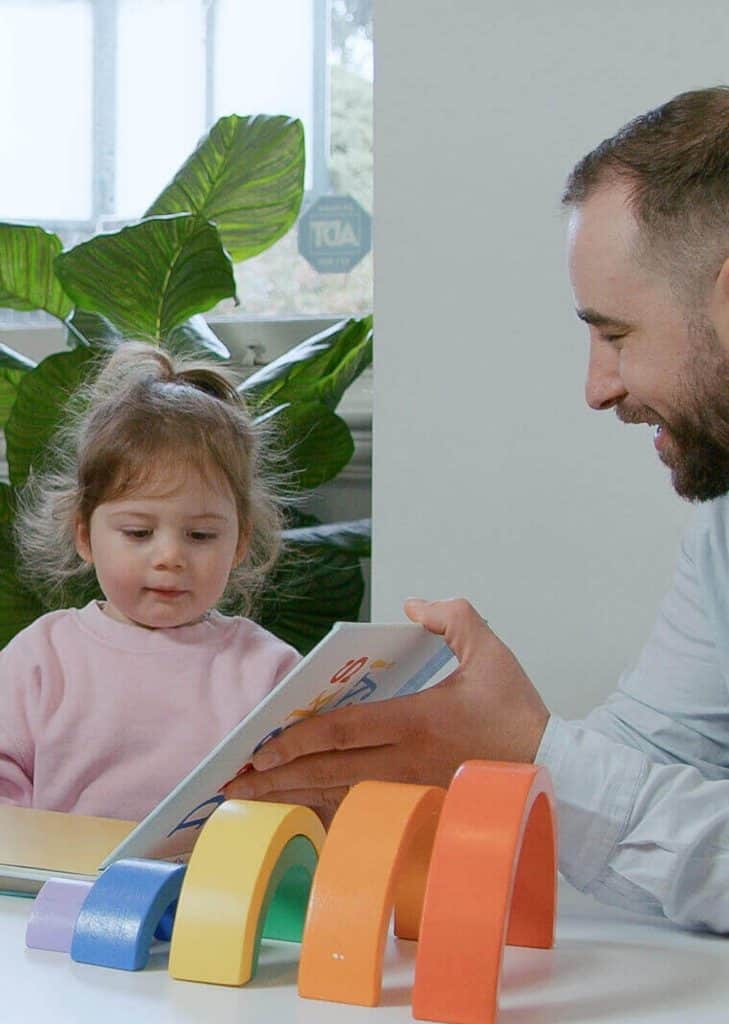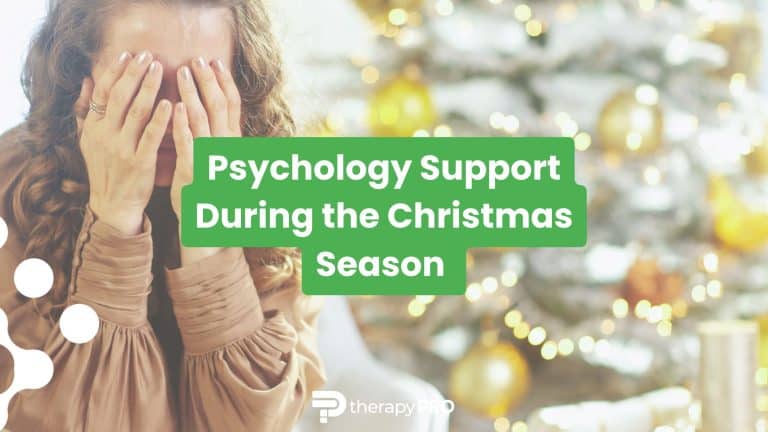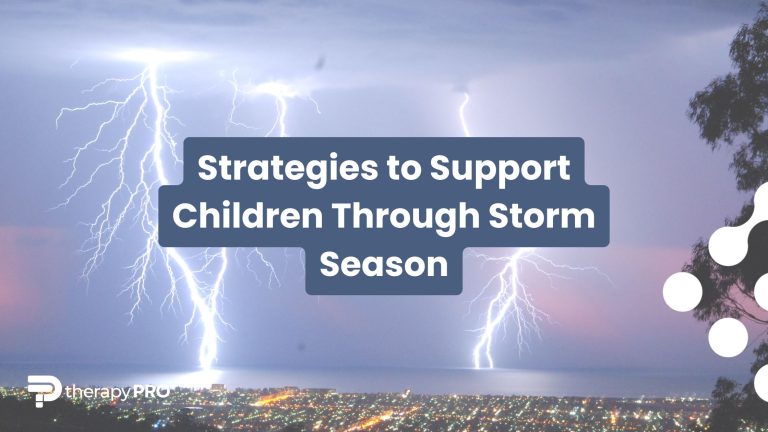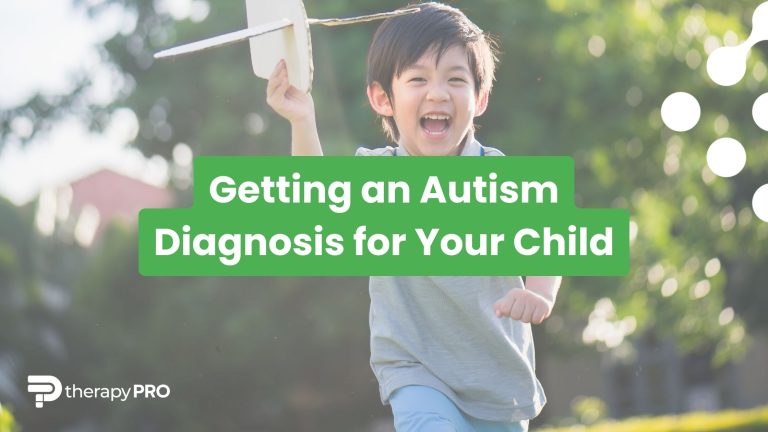Autism Assessment and Diagnosis Services
Wondering if you or your child might be on the autism spectrum?
At Therapy Pro, we help children and adults understand how they experience the world through comprehensive autism assessments.
Autism assessments help determine if there is an underlying reason for challenges with social communication, sensory sensitivities, difficulties with novel and new activities, routine changes, developmental delays, cognitive difficulties and more. The also provide an opportunity to explore a possible diagnosis and tailored recommendations for support.
We undertake standardised assessments across all ages and in line with the National Guideline for assessment and diagnosis of autism. Assessment reports are completed and signed off by psychologists who are able to provide a diagnosis, including Education and Development Psychologists or Clinical Psychologists. This means you don’t need to find other assessors or services to receive your results.
The assessment reports can used as part of your NDIS application, or sent to schools, universities, and workplaces to assist with accessing supports and accommodations.


Low wait times with clinics in Brisbane & Melbourne

Supporting children, teens, and adults

Autism, ADHD, cognition, and learning disorders
Understanding autism assessment
Autism is a lifelong neurodevelopmental difference that influences how a person experiences the world, processes information, and relates to others. People on the autism spectrum, have diverse strengths and individual support needs.
At Therapy Pro, we recognise the value of neurodiversity and provide client-centred assessments that honour each person’s unique profile.
An autism assessment is a comprehensive evaluation conducted by qualified professionals to determine whether someone meets the diagnostic criteria for autism spectrum disorder.
Our assessments go beyond diagnosis to provide a deep understanding of strengths, challenges and support needs, opening doors to appropriate services, accommodations and interventions.
When to consider an autism assessment
For children
If you have concerns about your child’s development, or if your child is demonstrating any of the below behaviours, please get in touch with our team today, and we can discuss if a comprehensive autism assessment is right for you.

Communication and language
- using fewer than 50 words at age two years
- not putting two words together after age two, for example 'Mummy go'
- challenges following simple instructions, for example 'get your shoes'
- not responding to sounds or when shown pictures
- not using gestures or pointing

Social and play skills
- plays differently with adults and other children than expected for their age
- prefers solitary play after age two and a half years
- makes eye contact infrequently or briefly
- shows little interest in typical toys or plays with toys in unexpected ways
- plays in repetitive or structured ways
- finds it difficult making and keeping friends (school-aged)
- communicates differently in social conversations

Learning and daily routines
- learns new skills at a different pace or in different ways
- differences developing independence in daily routines such as dressing, feeding self and toileting
- experiences frequent or prolonged periods of frustration, distress or meltdowns
- differences in reactions to sensory inputs such as sounds, lights, or touch
For adults
Many autistic adults, particularly women and gender-diverse individuals, develop sophisticated masking strategies that hide their autistic characteristics.
Masking involves consciously or unconsciously suppressing natural behaviours, copying others’ social interactions, for example forcing yourself to make eye contact or engage in small talk, despite it feeling uncomfortable or overwhelming.
While masking can help people ‘pass’ in social and work situations, it often leads to exhaustion, burnout, anxiety.
Our assessments recognise that autism can look different in people who have learnt to mask, and we take time to understand your authentic experiences beyond the strategies you may have developed to cope.
You may choose to seek a later-in-life autism assessment if:
- You have struggled with feeling socially isolated or different
- Family members have been diagnosed with autism and some characteristics sound familiar to you
- You have been diagnosed with other conditions but the diagnosis doesn't fully explain your experiences
- You want to better understand yourself and your unique strengths and challenges
- You need documentation for workplace accommodations or support services
- You've recently learnt more about autism and discovered that common experiences resonate with you
- You have been 'masking' or camouflaging autistic traits throughout your life and feel exhausted from trying to fit in or these have become overwhelming and are impacting your ability to live, work, and play.
Our autism assessment process
Multidisciplinary team
Our assessments are conducted by experienced psychologists with specialist training in autism assessment.
Depending on individual needs, your assessment may involve collaboration with other allied health professionals including speech and language pathologists, and occupational therapists.
Evidence-based tools
We use internationally recognised, standardised assessment tools including:
- Autism Diagnostic Observation Schedule, Second Edition (ADOS-2) – the gold standard observational assessment
- Monteiro Interview Guidelines for Diagnosing the Autism Spectrum (MIGDAS) – for adults
- Autism Diagnostic Interview-Revised (ADI-R)
- Additional cognitive and developmental assessments as needed
- Assessments of functional capacity (required for NDIS applications)
All our assessments align with DSM-5TR diagnostic criteria and the National Guidelines for the assessment and diagnosis of autism in Australia.
Duration: 45-60min
Who’s involved: psychologist, parent/carer (for children), individual being assessed (where appropriate)
- Understand your concerns and goals
- Detailed developmental history gathering
- Discussion of current functioning across home, school or work environments
- Review of any previous reports or assessments
- Completion of screening questionnaires and rating scales
- Explanation of the assessment process and what to expect
- For children: gathering information from parents, carers and teachers
- For adults: exploring lifetime experiences and developmental patterns
Duration: total 4-7 hours, across 2-3 appointments
Who attends: psychologist (and other therapists as needed eg., SLP or OT), individual being assessed, parent/carer
- Standardised assessment tools
- Cognitive and developmental testing (where appropriate)
- Observational activities tailored to age and language level
- Evaluation of social communication, interaction patterns and behaviours
- Assessment of sensory processing and adaptive functioning
Duration: 3-4 weeks after completion of testing
What we do: Comprehensive analysis
Your detailed written report includes:
- Background information and reason for referral
- Assessment methods and tools used
- Detailed assessment findings and observations
- Diagnostic conclusion using DSM-5TR criteria (if appropriate)
- Individual strengths and areas of support need
- Tailored recommendations for interventions, accommodations and supports
- Information suitable for NDIS applications, school support plans or workplace adjustments
Duration: 60min
Who attends: psychologist, parent/carer (for children), individual being assessed (where appropriate)
- In-depth discussion of assessment results and findings
- Explanation of diagnostic conclusions and what they mean
- Review of recommendations and next steps
- Opportunity to ask questions and clarify any concerns
- Discussion of available supports and services
- Guidance on accessing funding or accommodations

Who can diagnose autism?
Formal autism diagnoses are made by appropriately qualified professionals including Paediatricians, Psychiatrists, Educational and Developmental Psychologists, and Clinical Psychologists.
Our assessment reports provide comprehensive evidence to support diagnostic decision-making and are prepared to meet the requirements for formal diagnosis.
The means you do not need to seek any other assessors our professionals to receive your results.
Locations and service delivery
We can provide telehealth options for some portions of the assessment process however standard tests such as the ADOS-2 assessments are conducted face-to-face at our assessment clinics, providing a consistent and supportive environment for comprehensive evaluation.
Brisbane Clinic – 232 Kelvin Grove Road, Kelvin Grove, Qld 4059
Melbourne Clinic – 333 Nepean Highway, Brighton East, VIc 3187
Funding and Medicare information
Medicare rebates
Therapy Pro does not accept Medicare referrals for autism assessments.
NDIS funding
The NDIS does not fund diagnostic assessments, however our comprehensive reports and diagnosis are suitable for NDIS applications.
Private health insurance
Some private health insurance policies with extras cover may provide rebates for psychology and allied health services. We recommend contacting your insurer to confirm your specific coverage.
Fee for service
Our autism assessments are fee for service meaning clients pay out of pocket for the assessment and we do not use other funding sources such as the NDIS.
Assessment fees
Comprehensive autism assessment fees range from $2000-$2700 depending on the requested assessments.
Assessment fees include:
- Initial intake consultation
- All assessment sessions
- Comprehensive written report
- Feedback session

What makes the Therapy Pro process different?
Experienced team
Our psychologists and allied health team have specialist training in autism assessment and extensive experience working with autistic children and adults. We are committed to ongoing professional development and maintain reliability in standardised assessment tools.
Neurodiversity-affirming practice
We approach assessment through a strengths-based, neurodiversity-affirming lens. We recognise autism as a natural variation in human neurology and focus on understanding individual profiles.
Comprehensive support
As a multidisciplinary provider, Therapy Pro offers ongoing support beyond assessment. Our psychology, occupational therapy, speech and language pathology can provide integrated support tailored to your needs.
Evidence-based practice
All our assessments follow the National Guidelines for the assessment and diagnosis of autism in Australia and use internationally recognised gold standard assessment tools. We are committed to providing accurate, reliable evaluations based on current best practice.
Client-centred approach
You and your goals are at the centre of everything we do. We take time to understand your unique circumstances and tailor our assessment approach to ensure you feel comfortable, respected and supported throughout the process.
Flexible and accessible
With clinics in Brisbane and Melbourne, we provide accessible assessment services across two major metropolitan areas. Our team works with you to schedule appointments that fit your needs.
Frequently Asked Questions
The autism assessment process typically involves four to seven hours of direct assessment time, spread across multiple sessions. You can expect to receive your comprehensive report and feedback session within four weeks of your final session.
A referral is not required to book an autism assessment with Therapy Pro.
We provide autism assessments for children (from age two years) through to adults across the lifespan.
Yes, we can conduct comprehensive assessments that evaluate both autism and ADHD, as these conditions can co-occur. Please discuss this with our team when booking.
If the autism assessment does not result in an autism diagnosis, your report will still provide valuable information about strengths, challenges and support needs.
We can discuss alternative explanations for the concerns that prompted the assessment and recommend appropriate supports or further evaluation if needed.
Yes, our comprehensive assessment reports include functional impact information and recommendations that are appropriate for NDIS applications, school support plans and workplace accommodation requests.
We will provide detailed information about what to bring when you book your assessment. Generally, this includes any previous reports from other professionals, school reports, developmental records and completed questionnaires.

What Some of Our Clients Say

"I have had the pleasure of working with one of your therapists. I want to let you know how wonderful they are. They are professional, courteous, and kind."

"I really struggled finding a therapist after being on a wait list for a long time. I'm so grateful I found someone with Therapy Pro."

"Once again thank you SO much for your ongoing hard work and support!"
Take the next step - Book an autism assessment today
If you are considering an autism assessment for yourself or your child, our experienced team is here to help. We understand that seeking an assessment can feel like a significant step, and we are committed to making the process as comfortable and supportive as possible.
Or complete our online enquiry form and a member of our team will be in touch to discuss your needs and answer any questions.
Latest Articles
Storm Season Strategies: Supporting Kids Manage Weather Anxiety
Getting an Autism Diagnosis for Your Child

Together, let’s reach your goals
Have a question or want to know more? Get in touch – we’re here to help when it comes to psychology for children, adults and the ageing all across Australia


